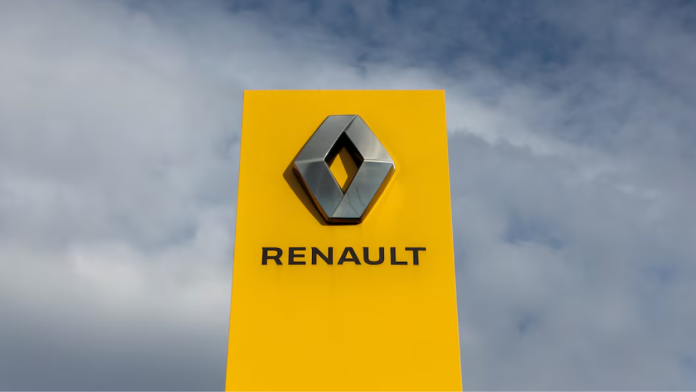Russia has officially added the French carmaker Renault SAS to its sanctions list. The action comes after reports suggested that Renault might support the production of drones for Ukraine. Russian authorities describe this step as part of “special economic measures” targeting foreign companies involved in defence-related activities.
These sanctions are significant. They prevent Renault from signing new contracts with Russian companies. Payments to the company may be restricted, and Russian businesses can suspend or cancel existing agreements with Renault. The Russian government first introduced such measures in 2022 as a tool to limit foreign involvement in military projects and protect national security.
Reason Behind the Sanctions
According to Russian officials, the sanctions were triggered by reports in June 2025. These reports indicated that Renault had approached France’s defence ministry with a proposal to start manufacturing drones in Ukraine. Russian authorities labelled this as an unfriendly act, warning that Renault’s return to the Russian market could be permanently blocked if the company proceeds with such plans.
EU sanctions in crisis as Austria prioritizes bank losses over Russia pressure
The move comes amid rising tensions between Russia and Western companies. Sanctioning Renault highlights Moscow’s willingness to act against foreign firms it believes are contributing to Ukraine’s defence capabilities.
Renault’s Long History in Russia
Renault has a deep-rooted presence in Russia that dates back to the early 1990s. The company initially formed a joint venture with the Moscow government. Over the years, the company gained full control of the venture and rebranded it as Renault Russia, becoming one of the leading foreign automakers in the country.
However, Renault left Russia following the 2022 full-scale invasion of Ukraine. The company transferred its Russian assets to the government for a symbolic price of one ruble. As part of this deal, Renault retained a six-year option to buy back its assets. This exit marked a major shift in the Russian auto industry.
Across party lines: Americans unite to arm Ukraine and tighten sanctions on Russia
Since Renault’s departure, its former Moscow plant has been used to produce vehicles under the revived Moskvich brand, with many designs now based on Chinese models. The plant continues to operate under Russian management, highlighting how the country has adapted foreign technology for domestic use.
The company has not publicly commented on the new sanctions or the reports linking it to Ukraine’s drone program. The company’s silence adds to the uncertainty around its future involvement in the region.
Ukraine’s Drone Program and International Partnerships
Ukraine has been actively expanding its drone capabilities to strengthen its defence operations. Recently, the country signed a cooperation agreement with a U.S.-based drone company. The deal focuses on supplying AI-enabled unmanned aerial vehicles (UAVs), which are designed to assist in surveillance and military operations.
Global crackdown intensifies as US sanctions 50 firms aiding Iran’s oil exports
The partnership aims to deliver a large number of drones to Ukraine. These UAVs are expected to enhance the country’s defensive and intelligence-gathering capabilities. The initiative shows how Ukraine is increasingly relying on international technology partnerships to boost its military readiness.
Company’s alleged involvement in Ukraine’s drone production illustrates the potential risks for companies that engage in defence-related projects abroad. It also reflects the continuing tensions between Russia and foreign companies that are perceived as supporting Ukraine’s military efforts.
The sanctions against Renault serve as a clear reminder of the broader geopolitical challenges that international businesses face when operating in conflict zones. Companies must carefully navigate complex political landscapes, where decisions in one country can have far-reaching consequences in another. Balancing commercial interests with international responsibilities has become increasingly critical, especially for firms involved in sensitive industries such as defence, technology, and manufacturing. The Renault case highlights how quickly business operations can be affected by geopolitical tensions and underscores the need for multinational companies to assess risks and make strategic choices in high-stakes environments.


